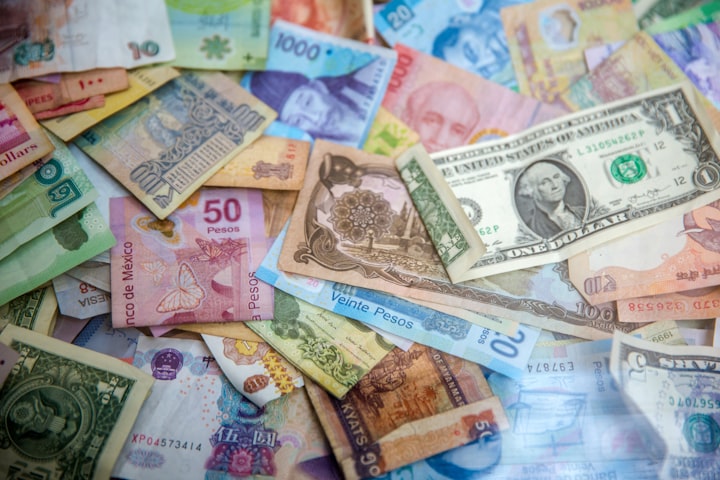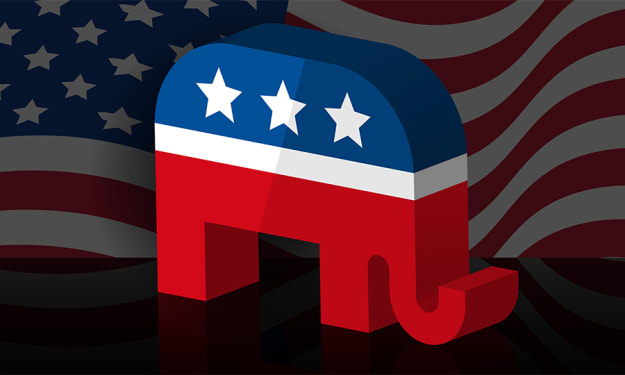Some Random Thoughts on Money
Including some insights from fiction

A TV show I watched recently and a movie I saw on the flight home from Australia got me to thinking a bit about money.
What is money? Usually money is held to have two components. It is a store of value and it is a medium of exchange. It is also said to be a unit of account but that is more of an accounting function than a day to day use of money.
Traditionally, libertarians have embraced precious metals as money. Gold and silver have the properties of durability, divisibility and inherent value. But over the years, precious metals fell out of favour and most of the world today uses fiat money, that is, money without an inherent intrinsic value. Money has become more and more a unit of account - a book keeping entry. With the wide-spread use of debit and credit cards, it is even more of a book keeping entry than anything.
Fiat money has come under fire by libertarians and Austrian economists because it is subject to the whims of the government of the day. Unrestrained political masters have and continue to inflate the money supply. Most Western democracies maintain some modicum of control, limiting inflation to a small manageable amount - two percent in Canada where I live.
One of the requirements of sound money is that it be stable. A currency fixed at an annual inflation rate of two percent is stable and predictable. Governments like to maintain a modest amount of inflation for several reasons. One is that it is a hidden tax. As wages rise due to inflation, bracket creep brings in larger tax revenues. But a bigger reason is that it corrects a fundamental error in public policy - the minimum wage.
The minimum wage, as the name implies, sets a minimum hourly wage for employees that employers must pay. The policy sets the minimum wage above what the free market would pay with the result of some unemployment for marginal employees. Inflation results in rising prices for goods and services including wages. This brings the real wage up to the artificially imposed minimum wage over time and minimizes the resulting unemployment effect.
But inflation also crimps the value of savings. And it imposes a loss on those on fixed incomes - mostly retired seniors.
A while back I wrote a five part series on The Trouble With Doom and Gloomers. In that piece I explained the gold theory of money and I also explained why I thought that the predictions of runaway inflation and other calamities were exaggerated and not particularly relevant.
Gold could very well make a good money, but I don't believe governments should return to a gold standard or impose any sort of money standard at all. Money should be privatized. In fact, in early America, this was just the case.
In his book, Uncle Sam the Monopoly Man, William C. Wooldridge details many different cases of the private sector providing services now provided by the public sector, including roads, postal services and...money!
In a chapter called Every Man His Own Mintmaster, Wooldridge notes that "until a little over a century ago, coins could be struck with impunity in the United States, for the statutes creating the coinage monopoly were pieced together bit by bit in the form of amendments to the counterfeit laws, and excluded the last private change only in 1863".
Today, banks and credit card companies provide a money substitute in plastic. You no longer need to carry coins or even paper money at all. Everything is a book-keeping entry, a matter of accounting, though these institutions do use fiat currency as their basis.
And more recently, in 2008, a private digital currency called Bitcoin was created. Like fiat money, Bitcoin has no intrinsic value. It is not a thing as such. It is not gold, silver or any other tangible product. It is entirely an electronically generated currency, but with a difference.
As noted above, fiat currency is subject to the caprice of government. Governments can and do inflate the currency, even if at modest amounts most of the time. Inflation simply means the printing of more money. But Bitcoin is "mined" through a complicated method that incurs costs, just as the mining of physical gold incurs costs. Most of the cost is electricity, though there are also hardware costs - the purchase of physical computers to do the "mining". And, here's the thing - Bitcoin is strictly limited in the number of Bitcoins that will eventually be circulated. Like a physical mine that eventually runs dry, Bitcoin mining is designed to run out of minable Bitcoin when 21 million coins have been mined, expected to happen around February 2140.
At that point, Bitcoin will become a deflationary currency. Its numbers will be fixed at 21 million, but as more people start using it, each Bitcoin will become more valuable. This in contrast to the inflationary fiat currencies currently dominating the world.
Not surprisingly, Bitcoin has encountered competition and there are now over 10,000 altcoins or alternative cryptocurrencies as they are called.
Bitcoin faces the risk of being superseded by new and better technology as new altcoins come on the market. But as the first, it is still the most prominent and popular of the cryptos.
Cryptocurrencies fall exactly into the role that private mintmasters did in Wooldridge's book. Private money, unhampered by governments, though some, like China, have officially banned Bitcoin. And some, notably the government of El Salvador, have made it their official currency.
The position on money I hold is the same as that of Friedrich Hayek – the market should determine what is money. In his book The Denationalization of Money (1976), Hayek proposed " the abolition of the government’s monopoly over the issue of fiat money in order to prevent price instability. In fact, his defense of a complete privatization of money supply stemmed from his disappointment with central banks’ management, which, in his opinion, had been highly influenced by politics. Thus, the ultimate objective of the denationalization of money was related to avoiding political interference in monetary policy. Indeed, according to Hayek, a stable price level is, in principle, of central importance in ensuring that the three microeconomic functions which money provides are allowed to operate with maximum efficiency". (see article by Maria Alejandra Madi at the World Economics Association).
Speculative Thoughts on Money
As I noted at the beginning of the article, I got inspired to write this piece after watching a TV show while in Australia and a movie on the flight home. And they both reminded me of a movie I saw some time ago. While in Regina recently, I came across the movie and watched it again.
Each of these speculates on alternate forms of money in some way. Let's look at the oldest movie first – In Time, a 2011 sci-fi flick starring Justin Timberlake and Amanda Seyfried. It takes place in a hypothetical future where everyone ages until age 25 and then stays young forever. However, there is a twist. When you turn 25, an implanted electronic clock activates in your arm. Its numbers display on your arm. It is set to one year, which is exactly how much time you have left to live.
But you can earn more time as time has become the currency of the land. You pay for everything in time. So if you buy a coffee, in the movie it costs three seconds, you pass your arm over a reader which subtracts three seconds from your remaining life and adds it to the life of the coffee vendor.
In any event, some people, the rich, have accumulated a lot of excess time and can live virtually forever, while the poor scrabble from paycheck to paycheck, often just a day ahead of death's doorstep.
Yep - some smart wag took the old expression, "time is money" and turned it into a movie!
Time can be stored in special portable vaults and large amounts are stored in special banks – time vaults if you will. The movie includes a few obvious puns on time as money, which as a fan of puns I quite appreciated. These include cops known as Time Keepers and a gang of bandits that rob people of their time who call themselves Minute Men.
The main plot is poor boy meets rebellious rich girl and together they rob time vaults and give time to the poor – sort of modern day Robin Hoods. It's not a great movie, but entertaining. I like its speculative aspect – what if time were money? Is it a feasible concept? My thought is that it is not. With commodity or even fiat money, economics is driven by wealth creation. Capitalism has enhanced our lives through wealth creation for everyone who wants to work and produce.
Time as money is, by contrast, a zero-sum game. One can only gain wealth (extra time) by reducing the time available to another. New "money" comes on stream only when children grow up and reach the age of 25. And lack of "money" can be fatal. When the money runs out, you die! A zero-sum game. It's an interesting plot device but not one that can actually work in the real world.
Next let's look at the TV show I watched, an episode of the Netflix show, Black Mirror. This sci-fi series speculates on the possible future impact of electronic devices like cellphones and computers. Episode 1 of Season 3 is called Nosedive and speculates on a world where popularity on social media has become a commodity, a currency if you will. Everyone carries an app on their phone that lets you rate people you meet and lets them rate you. A perfect rating is five.
Here's how it works: say you get exceptionally good service at a restaurant. You give the waiter a five rating. Often the waiter will reciprocate and give you a five rating for being a good customer. Or you encounter someone who engages in an act of road rage. Better give that bozo a one or even a zero.
In any event, your rating is public and everyone can see whether you are a "socially acceptable" person or not. Some country clubs are very exclusive and won't allow anyone with less than a 4.8 rating in.
Bryce Dallas Howard plays Lacie, a young woman with a 4.2 rating who desperately wants to up her rating so she can buy an apartment that only sells to people rated 4.5 or higher. She gets invited by an old school chum who has a 4.8 rating to be her Maid of Honor at her wedding. Lacie sees this as her chance to improve her rating by getting likes from all her friend's friends.
But poor Lacie runs into a slew of troubles. A cancelled flight to her friend's city has her utter a curse at the airline attendant. Bad move. The attendant immediately gives her a two rating. Bad luck compounds and poor Lacie ends up bumming a ride from a female truck driver. She is reluctant to take the ride because the driver is rated less than two. But she has no choice and takes the ride. Their ensuing conversation is enlightening.
In any event, here the currency of social compatibility scores is, to put not too fine a spin on it, a perverse form of social control. Everyone tries to be polite and nice all the time to get ahead. But when you think of it, money is also a form of social control. It is an incentive to work hard, or be creative or whatever is demanded of you to earn your income. It is not as insipid as the currency in the TV show. You only have to please your boss in real life, not every Tom, Dick and Harry you meet. But I could see such an app being developed and people embracing it. Even today, people who blog or post videos or even post something on Facebook, are often keen to get as many "likes" as possible. In some cases it has real monetary value - on a paid Youtube channel, for example. This TV show, while speculative, is not too far-fetched in my opinion.
The third thing I saw was a movie called Downsizing. It's a 2017 film starring Matt Damon and Christoph Waltz. Some Norwegian scientists have come up with a technology that can shrink a person down to five inches tall. The film is overtly environmental and the motive for the invention is that a world of tiny people will leave less of an environmental footprint on the planet.
But the environmental message aside, it also raises an interesting question about wealth. Whole cities of tiny people are being created. The incentive for some is to save the planet, but for many, including Matt Damon's character, it is something quite different.
In the real world, downsizing often means cutting back to make ends meet. You trade down to a smaller house so that you have a smaller and more manageable mortgage. A company may downsize to cut costs and often this downsizing may involve layoffs, resulting in the laid off worker downsizing his home and his car and so on.
But what if you, the person, were physically downsized to five inches? You wouldn't need as big a house. You could build a mansion for a fraction of the cost of building a full-size mansion. So in the movie, a person of modest means with a savings of $150-200,000 could downsize at a cost of around $16,000 and have enough left over to buy a mansion in small world that would cost millions in big world. Damon finds his net worth of around $150,000 is worth around $17 million in small world. He and his wife decide to downsize so they can live like kings. His wife reneges at the last minute and Damon finds himself on his own which sets up a whole new plot twist.
Regardless, it brings a whole new meaning to the idea of stretching a dollar. It had me speculating on whether I would downsize so I could live like a multi-millionaire. Would you? It's an interesting thought.
Anyway, those are three films which offer interesting thoughts on money and wealth. If you find the ideas intriguing, you may want to watch the respective films.
Links of Interest
If you liked this story, please heart it. If you really like it, a tip would be nice. For more of my feature stories on topics ranging from music to philosophy to travel and including short fiction and poems, click the link below.
About the Creator
Marco den Ouden
Marco is the published author of two books on investing in the stock market. Since retiring in 2014 after forty years in broadcast journalism, Marco has become an avid blogger on philosophy, travel, and music He also writes short stories.






Comments
There are no comments for this story
Be the first to respond and start the conversation.